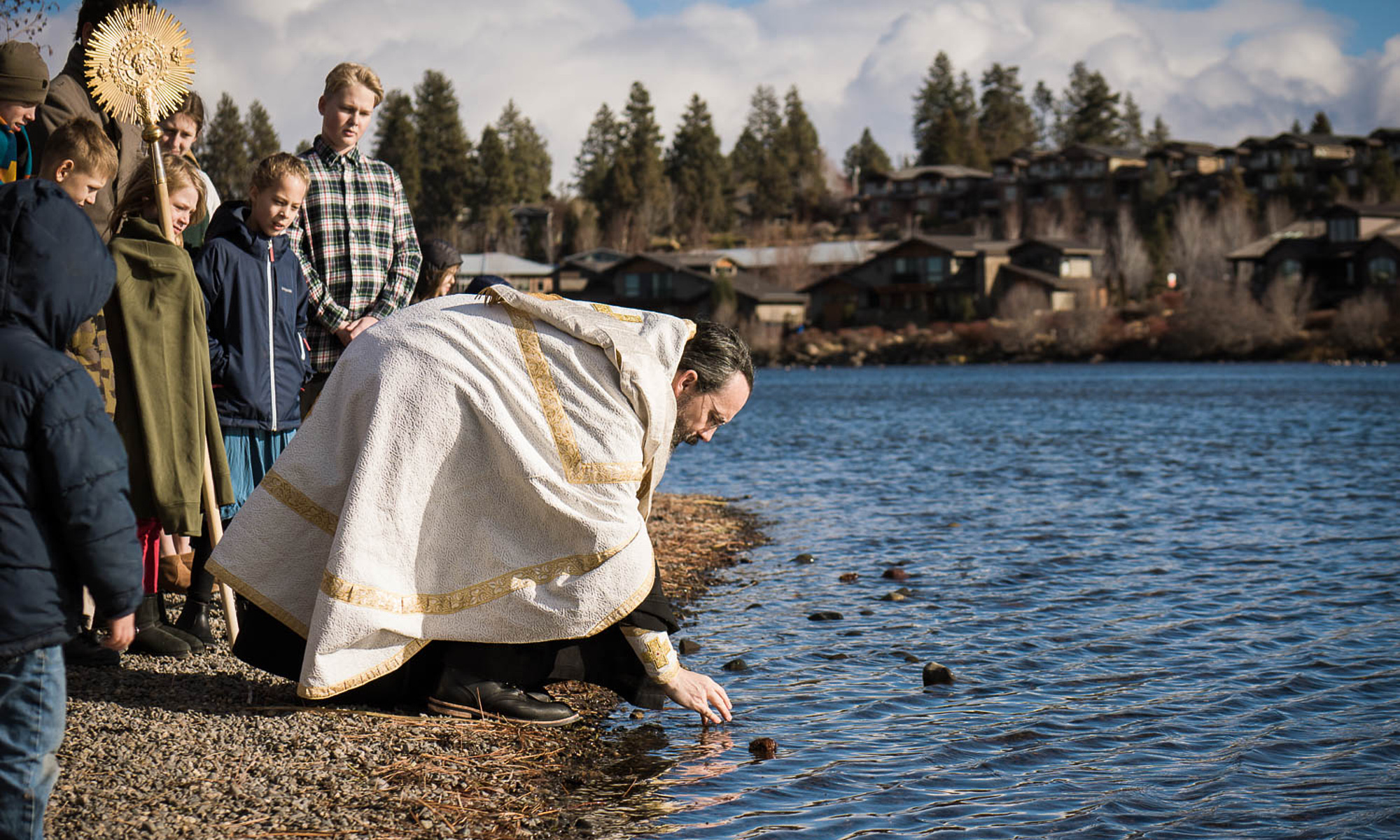First looking at St. Basil’s three hundred and something letters, I was afraid I would not find direction toward the spiritual life for quite some time. Well, I was wrong. In Letter II: Basil to Gregory, that is St. Gregory of Nyssa, a friend of his, I hit a key word that really sparked my curiosity and which did lead to some of St. Basil’s “secrets” to the spiritual life.
He went on to say, “For it is no more possible to write in wax without first smoothing away the letters previously written thereon, than it is to supply the soul with divine teachings without first removing its preconceptions derived from habit.” For to reach that end, “solitude gives us the greatest help, since it calms our passions and gives reason leisure to sever them completely from the soul.”
He said, “We must try to keep the mind in tranquility.”
That “tranquility” word made me wonder if he might possibly be talking about hesychia, the much-mentioned idea Orthodoxy writings: hesychia being that quiet or stillness in God as the primary path to union with him. Sure enough, in Greek, St. Basil said, Ἐν ἡσυχίᾳ τὸν νοῦν ἔχειν πειρᾶσθαι προσήκει, and there is the hesychia, translated as “tranquility”. And this was not just a mention of a key term, it was a central theme to this letter.
Here, for “solitude”, he uses the word ἡ ἐρημία, directly connected to the Greek word for ‘desert’ and from which we derive the words eremitic and hermit, but this solitude and silence is one and the same idea. Most of us live in the world, and not isolated out in some cave. As ones living in the world, it is much more difficult to attain that quietness of soul to even begin to be able to listen to God. Living in the world, we are constantly “exasperated by constant irritations” and “interrupted by external distraction”, as St. Basil puts it. We are a buzz of passions. That white noise is so great, we cannot discern the main signal, like driving out of range of our favorite radio station.
Our spiritual guide, through his letters, provides some encouragement for us non-hermits, saying that these passions are “lulled to sleep” by the practice of hesychasm (κατευνασθέντα διὰ τῆς ἠσυχίας). He presents this silence as the first step in our spiritual journey. “Hesychia is the beginning of the cleansing of the soul” (ἠσυχία οὖν ἀρχὴ καθάρσεως τῇ ψυχῇ). For, once quiet, we begin to be cleansed. Once cleansed, or with our wax smoothed clear, as St. Basil earlier said, we can begin to discern the divine teachings being written on our hearts.
Of course, our experienced spiritual father goes on to give more direct and clear steps to the practice of the spiritual life: praying throughout the day, meditating on the divinely-inspired Scriptures, the continual and intentional practice of virtue, and in general, ever keeping God on our minds. “We thus become temples of God whenever earthly cares cease to interrupt the continuity of our memory of Him.”
After sharing all those practices, however, our teacher in the spiritual life returns again at the end of his letter to the central idea of silence. “More than anything, ‘school’ to the soul is the gracious granting of nightly hesychia” where “alone through itself the nous communes with God.” (μάλιστα σχολῆν τῇ ψυχῇ τῆς νυκτερινῆς ἠσυχίας χαριζομένης … ἀλλὰ μόνου καθ᾽ ἑαυτὸν τοῦ νοῦ τῷ Θεῷ συνόντος).

Silence, when the soul,heart,blood speek.Thank you!